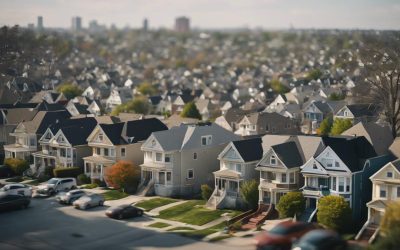
Taking your eyes off a screen can be a tough challenge, we’ve become so reliant on the technology we use in our everyday lives – but could we become more self-sufficient? Smartphones, cars, and constant food, water, and energy supplies have all contributed towards an existence that is reliant upon these things every day and night; without them we would probably struggle to live our lives in a way that felt comfortable.
Individual independence can be regained by changing the way we live – but this does not mean that we must lower the quality of our lifestyle. By replacing energy and water supplies from the main grid for renewable alternatives, this way of living offers a sustainable alternative to a lifestyle where everything we need is available to use 24/7. Together with Flogas, who could supply a gas cylinder to help you make this transition, look into how living off-grid can be easier than you think.
Power supplies
Energy is important because you rely on it to supply power to your home – an alternative energy supply will be needed for when you remove yourself from the grid. Solar energy is a reliable form of power that can produce around 3,400kWh of free electricity every year.
Families with young children will most likely need a solar panel system that supplies around 3kW to 4kW of energy. Whereas a 2kW to 3kW solar panel will produce enough energy for smaller homes with less people living in them. A 3kW overall solar system will cost around £5,000 – £6,000 and will be a sound investment based on the amount of free electricity you will procure during its lifetime.
Generators should be set up in case your power supply ever fails on you – this can often happen on cloudy days as your solar panels could stop working. Or alternatively, domestic wind turbines can also be installed that produce 5kW to 6kW of energy; you will also be paid for any energy that you don’t use which is sent back to the grid.
Things you should consider
If you are going to use generators that are not close to where you are based, it is important that you only use the power that you need to use to avoid any potential issues.
To keep energy costs low and to live within your own budget, LED bulbs should be used to replace incandescent bulbs – helping to reduce electricity costs by 75%; you should aim to get rid of any electrical appliances that you don’t need, and make sure that all electrical appliances are turned off at the mains once they have been used.
Water and your draining system
If you’re not living close to a natural source of water such as a river, you’ll need to generate your own. A well can cost anything between £10,000 – 20,000, and this is dependent upon how deep the well is dug, and whether the well will be used as a source of drinking water or for other domestic purposes.
Without a sewage system, you will need to purchase a sceptic tank and this will need to be emptied often by a vacuum truck so you know that it is being disposed of correctly. As well as this, a greywater system should also be installed; by treating water used in dishwashing, sinks, showers and baths, this water can be used again. This also benefits the lifespan of your well, as you can reuse water that has already been cleaned and brought to the surface.
Making lifestyle changes
Changing energy sources is one way to shift up your life, but changing your lifestyle entirely could be beneficial to you. There are other ways to live off grid, and you will make many mistakes along the way, but becoming self-sufficient may just be the key to your unlocked potential and happiness.
Reducing waste
Monitoring how much of each essential resource you use is important, from energy to food and even water. If you begin to slip, then your reliance on these things may reach unsustainable levels, which may impact your ability to live off-grid. There are many ways to keep on top of waste, and these include:
- Keeping showers short.
- Only using artificial lighting when it is completely dark.
- Turning off lights after exiting a room.
- Using food leftovers for compost to create a rich soil for growing more fruit and vegetables.
- Attend workshops that allow you to learn more about how to repair any damages to the home, or how to cultivate land for agricultural practices.
- Adopt techniques such as hunting and fishing so as to catch fresh food, helping to reduce your reliance upon supermarkets that you would usually have to drive to.
- Rental Market Sees Surge in Tenant Inquiries - May 2, 2024
- Rental Crisis: Less Than Half of Homes Ready - April 30, 2024
- Thinking Of Buying A Ground Floor Flat? Common Issues You Might Face - April 30, 2024



